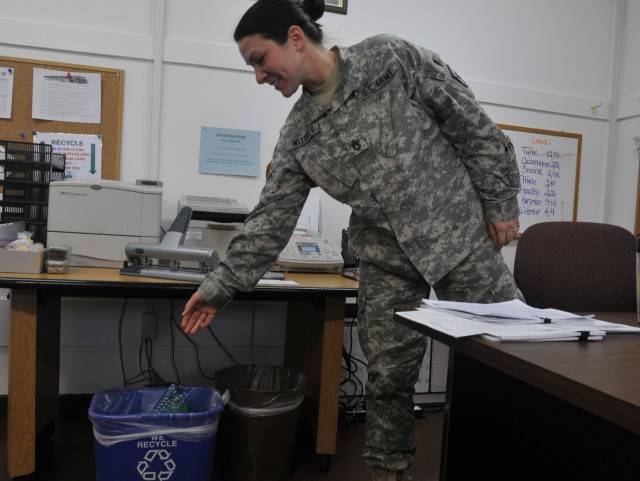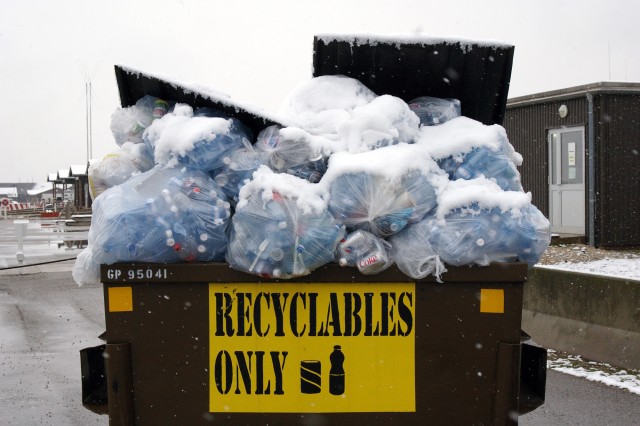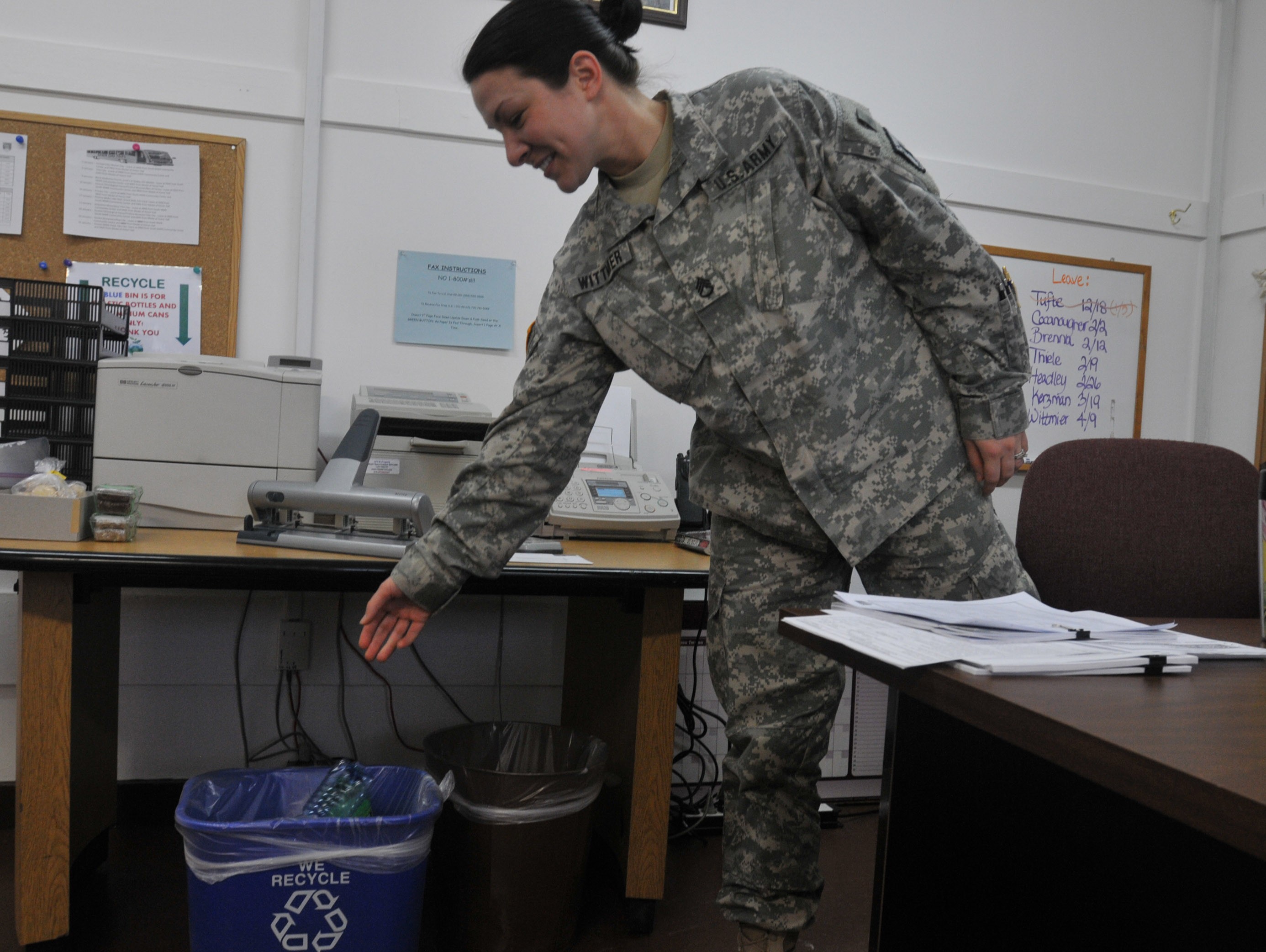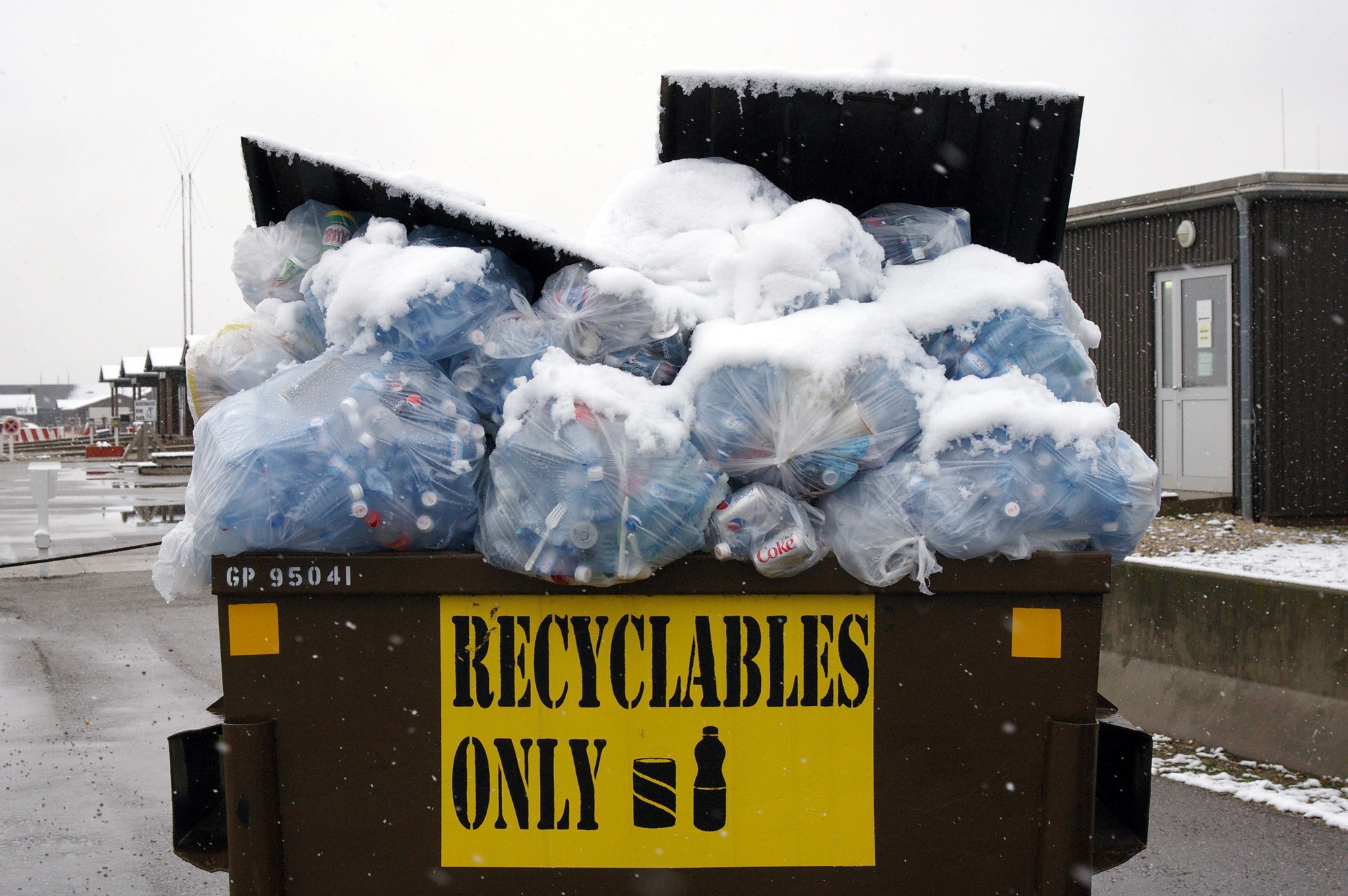CAMP BONDSTEEL, Kosovo -- What started as a search for a solution how to
handle the thousands of water bottles tossed away each day here at Camp
Bondsteel has turned into a full-fledged effort by local institutions to
promote responsible waste management in Kosovo.
For weeks now, MNTF-E Soldiers have been working with USAID and other
nongovernmental organizations to get local groups involved in recycling
efforts and to stimulate economic development in Kosovo along the way.
The effort has led to USAID's Special Projects Division teaming up with a
waste-management company called Higjenia in Gjilan/Gnjilane, and the
contracting of 100 solid-waste containers and six months of garbage
collection services in Ranilug, Klokot/Kllokot and Novo Brdo, according to
Lt. Col. Anthony S. Cruz, with the 322nd Civil Affairs, of KFOR (Kosovo
Forces), Multi-national Task Force-East.
A number of other local businesses already are taking the lead in the
effort, including MEA, a local company in Ferizaj/Urosevac which now accepts
discarded water bottles from Camp Bondsteel with the aim they be recycled.
Another initiative, Cruz said, is to lessen the impact the KFOR base of Camp
Bondsteel has on the local municipality landfill in Gjilan/Gnjilane. Each
day, between four and eight truckloads of garbage leaves the base.
This is an important consideration, since, by some estimations, the
Gjilan/Gnjilane landfill, which was supposed to last 15 years, will be full
long before then.
"The theme here is that the U.S. and our multi-national partners are working
side-by-side with local institutions and local municipalities to help Kosovo
go green," Cruz said.
The final initiative centers on wood pallets that are used to transport and
store the water bottles used on Camp Bondsteel. Instead of burning the piles
of old and broken pallets that collect on base, the MNTF-E Civil Affairs
team is working through the Kosovo Private Enterprise Program (KPEP) to give
the pallets to Korenica, a local wood furniture manufacturer.
Korenica grinds the pallets down to saw dust and uses it as a buffer between
the wood flooring products it sells. NGOs also are making sure some of the
wood pallets go to people who need them for firewood.
In the future, the MNTF-E Civil Affairs is hoping to team with more local
enterprises, government and nongovernment institutions to continue
developing ways to build capacity for better waste management in Kosovo.
"Responsible waste management is everyone's responsibility and a good
practice no matter where you might live or where you might be living
temporarily," said Brig. Gen. Al Dohrmann, commanding general of MNTF-E. "I
commend the businesses and nongovernmental organizations in Kosovo for
embracing change and seizing this opportunity to make the area cleaner and a
healthier place for all to live and work as we continue to work for a
brighter future for Kosovo"




Social Sharing